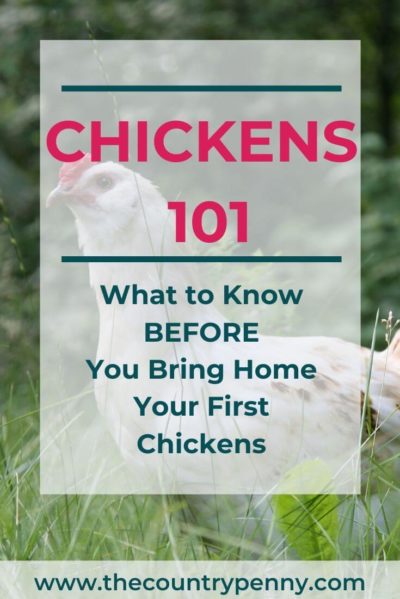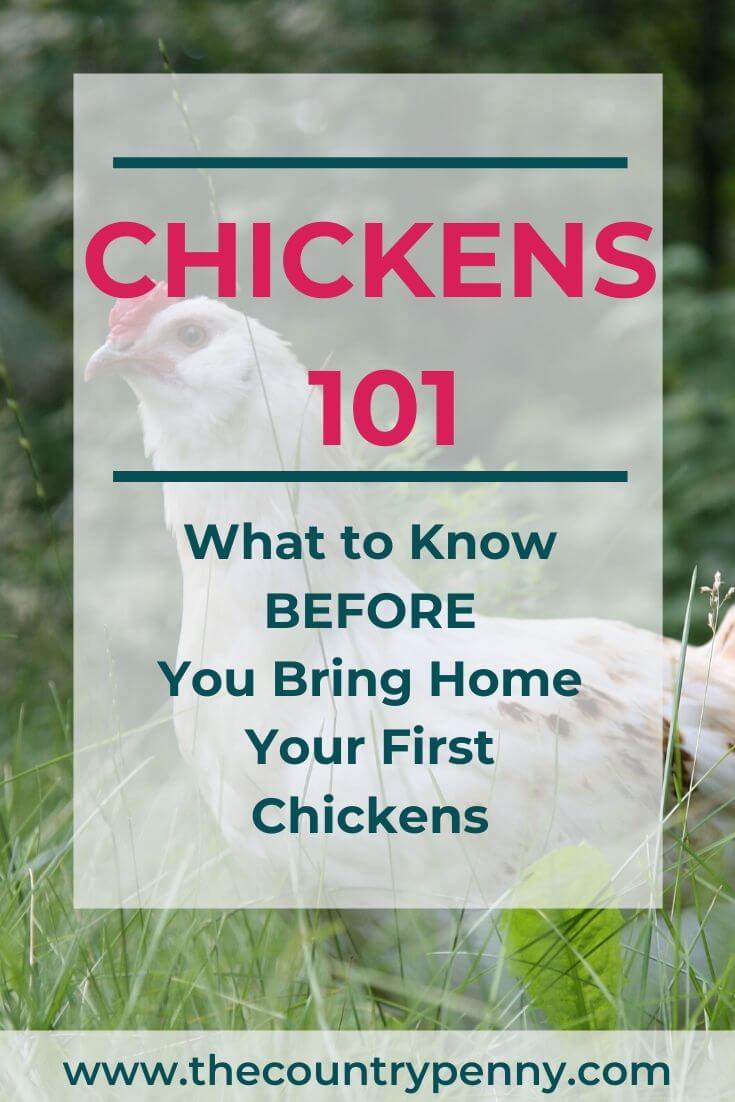Don’t have time to read it now? Pin it for later!
So, you’re thinking about getting chickens? Chickens are one of the first farm animals that are usually recommended to new homesteaders. There are some good reasons for that too. Chickens are relatively simple to keep, require very little space, and are inexpensive to buy and house. In return for a little feed and water they will lay more eggs than you know what to do with!
Chickens are the best beginning farm animal!
Chickens aren’t intimidating to new homesteaders the way that larger livestock is. While a cow or pig is large enough to cause serious injuries the worst that a hen will do is peck your fingers.
Chickens are also a great way to find out if you even like having animals around the homestead. Like other livestock, chickens require daily attention and care. It only takes me about five minutes to take care of my chickens every day. It’s not a lot of time, but if you are somebody who likes to travel a lot, livestock of any kind complicates that. You have to have somebody who can feed and water your animals for you at a bare minimum.
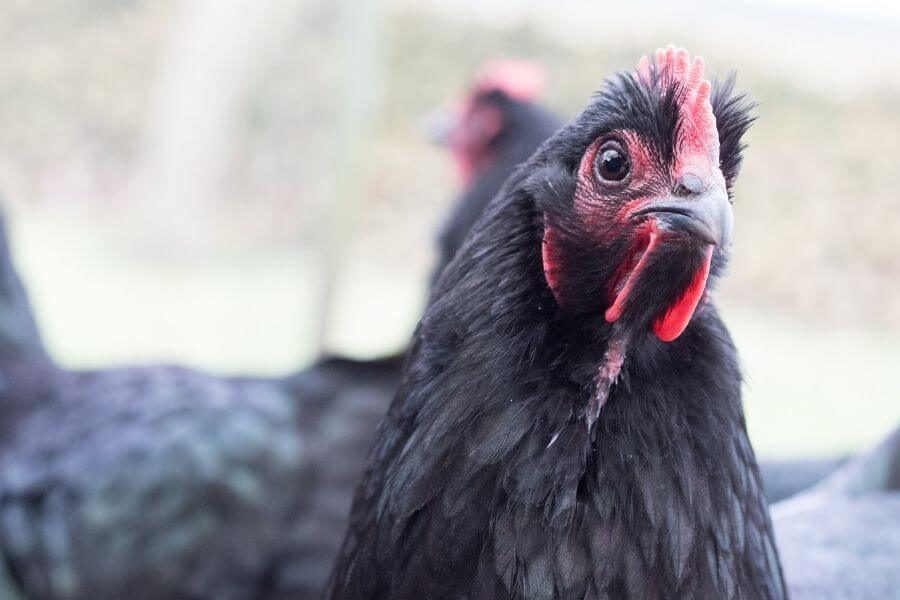
Laying Hens
Most people that get chickens start out by keeping hens for their eggs. Store bought eggs can’t even come close to farm fresh eggs with their bright orange yolks and rich flavor. Hens will usually lay an egg a day for the first two to three years, but then they slow down. Laying hens can easily live for six to seven years and some people have hens that are well over ten years old. The older your hens are, the more sporadically they will lay and the fewer eggs you will get every day.
There are a few options for older hens. You can either keep your hens as pets and be ok with getting fewer and fewer eggs every day. There’s nothing wrong with this, just understand that it isn’t going to be the most economical way of producing eggs.
You can also try to rehome your older hens. However, if you rehome your hens you have to accept that some of them may get eaten. If you’re ok with that and just don’t want to butcher or eat them yourself, then this can be a good option.
The third option is to butcher your hens when they stop laying consistently. This is what we will be doing with our current hens when they stop laying. On my homestead, chickens are livestock. I’m dedicated to providing them with a good quality of life, but they do have a purpose on our homestead. Once they aren’t fulfilling that purpose anymore, in this case laying eggs, it is time for them to be humanely butchered and feed our family.
If you are ok with eating your birds but don’t want to butcher them yourself, you can have somebody come and butcher for you or take them to a butcher shop for processing.
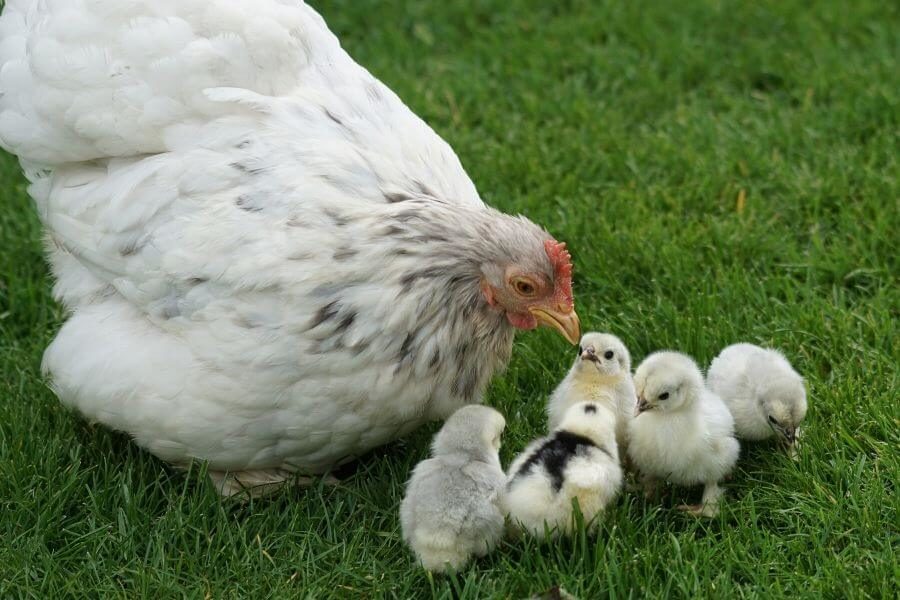
Breeds of laying hens
We have a mixed flock of hens and each breed has it’s own advantages and disadvantages. I like having all different colors and types of chickens, but if you want to hatch chicks that are the same breed as the parents you will need to stick to just one breed in the coop.
Black Laced Wyandotte- These have been very consistent layers for us. They are a bit more skittish and less friendly than some of our other hens. They aren’t mean at all, they just don’t want to come hang out with you very much. They are a medium large bird and would make a good dual purpose bird.
Sapphire Gem- These are my favorite hens! They are friendly and put up with my baby petting them. I also think they are just pretty. They are a blue grey and lay large brown eggs. They’ve been very consistent layers. They are also medium to large hens and have a decent amount of meat when you butcher them.
Buff Orpington- My Buff Orpingtons are friendly, calm birds. They are good layers who are also fantastic with kids. They are pretty large birds and dress out well when you butcher them.
Black Sexlink- These hens are not my favorite. They’ve been great layers and they dress out pretty well, but they’ve all been kind of ornery birds. They tend to push the other hens around and be bossy. They are very consistent layers, and in my experience, lay better in the winter than most of the rest of my flock. I just don’t really like them as well as my other hens.
Bantams- I love my bantam! I only have one right now, and she’s a complete pet. She lays well, except for when she’s broody, and she’s always broody! If you want to hatch chicks, a bantam will hatch at least two clutches a year if you’ll let her. She also steals eggs out of other hens’ nests to try to hatch. I would switch out the bantam eggs for other hens eggs or else you’ll have a huge flock of bantams. Their eggs are small, but they would be an excellent choice if you only have a little bit of space and want several chickens. Don’t mix them into a full size flock of hens if you don’t have enough room or they will get picked on.
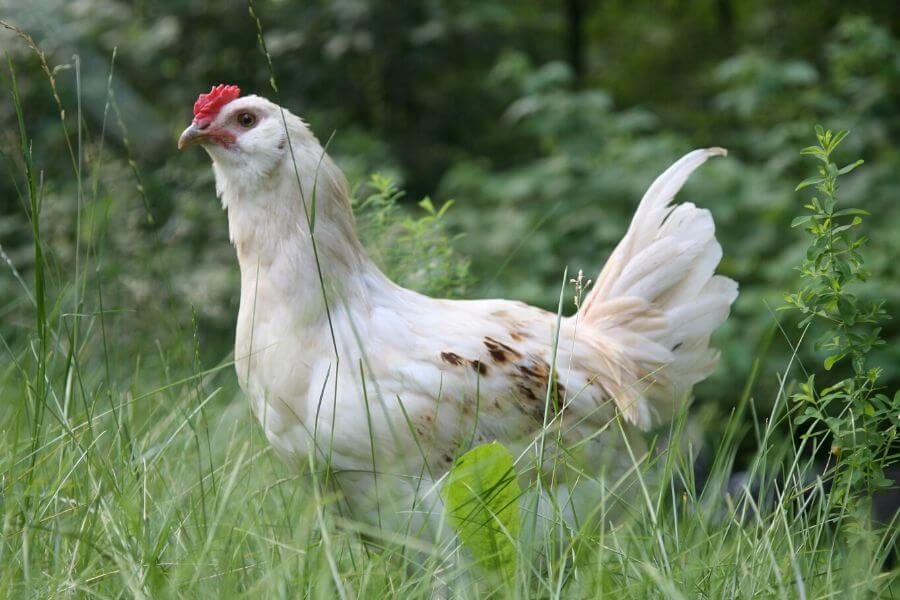
Roosters
Contrary to popular belief, you don’t need a rooster to get eggs. Hens will lay with or without a rooster present. You only need a rooster if you want to hatch chicks from your eggs.
Many towns don’t allow roosters even if they do allow hens, so it’s a good idea to check your city ordinances if you live in town.
Roosters are much louder than hens and they can be aggressive. Sometimes this is a good thing since a good rooster will protect the hens and herd them to safety when there are predators lurking nearby. Unfortunately, some roosters can become very aggressive towards people. I have never had an issue with an aggressive rooster, thankfully. Maybe I’ve just been lucky so far, but I think this is because our roosters aren’t treated like pets.
While I handle all the chicks while they are little, if I have a rooster, I will gradually get more hands off with him as he gets older. I don’t like my roosters being too comfortable with the idea of challenging me. I also try to choose the best tempered roosters to keep in my flock. We don’t have a rooster at all right now.
The only thing I really miss about having a rooster is having chicks in the spring. I don’t actually need chicks in the spring, but I want them!
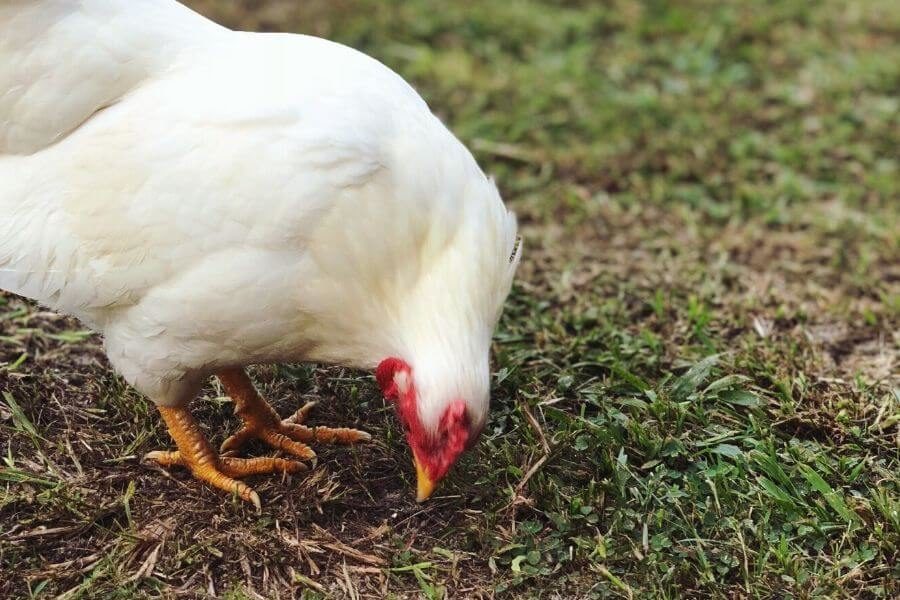
Meat chickens
While we do butcher our older laying hens, we haven’t raised meat chickens yet. Unfortunately, while we are in town, our city ordinances won’t let us have enough birds to raise meat birds and have our laying hens. I’m planning to get meat chickens once we have moved out of town, hopefully in the next year or two.
Butchering takes a little bit of time and there is a definite learning curve, particularly if you haven’t ever butchered anything before. I rarely use a whole chicken, so I prefer to cut my chicken into pieces while I’m butchering.
We package our chickens into leg and thigh quarters, boneless breasts, and wings and then the rest of the carcass gets turned into chicken stock or chicken noodle soup.
Meat chicken breeds
Cornish Cross- These are the big white chickens that most people think of for meat chickens. They put on a huge amount of weight very quickly and are ready to butcher between eight and nine weeks. They are usually between eight and ten pounds at butchering. They are prone to leg and heart issues if they aren’t butchered early enough, due to their incredibly fast growth rate.
Freedom Ranger- These birds are slower growing than Cornish Cross but don’t tend to have the health issues that the Cornish Cross birds have. They are typically butchered at around twelve weeks. They are bred to be good foragers.
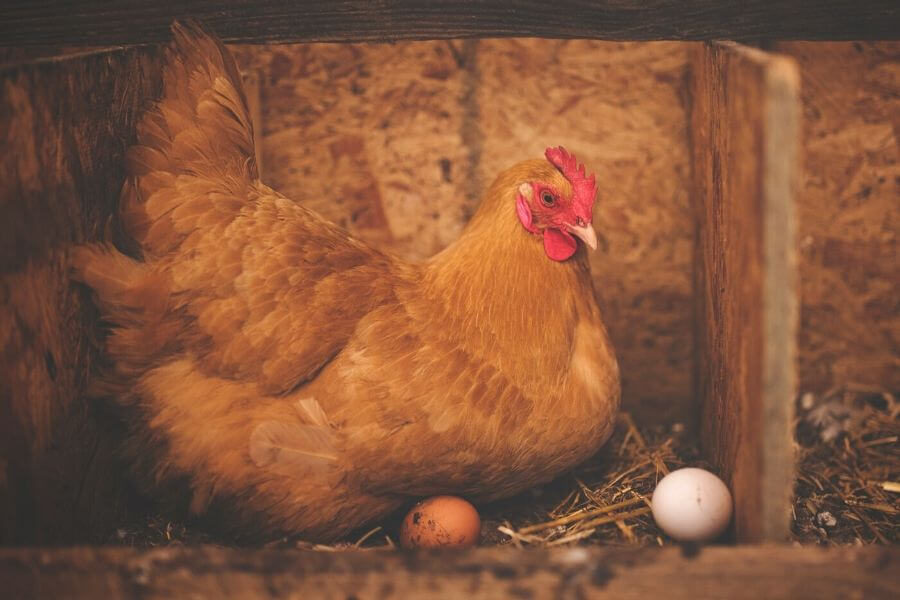
Housing
Chickens can be free ranged, kept in a coop, or a combination of the two. There’s pros and cons to both options.
Free Range
Free range chickens are much more vulnerable to predators. Chickens are at the bottom of the food chain and if you have any predators around at all, they will eventually find your chickens and you will lose some.
Free range chickens can find most of their own food from spilled feed, weed seeds, bugs, and plants. This can make them much cheaper to feed. On the other hand, unless you fence them out of the garden, they will also help themselves to your tomatoes, squash, lettuce, and beans! A flock of chickens can wreak havoc on a garden in a very short time.
Gathering eggs from free range chickens is a lot like an Easter egg hunt. Are they in the hay stack or under the pile of weeds or in the tractor? Nobody knows and it takes a long time to gather eggs when you have to hunt for them everyday.
Chicken Coop
A sturdy chicken coop will protect your chickens from most predators. Even the best chicken coop isn’t perfect but you will lose far fewer chickens to predators when they are securely contained.
When chickens live in a coop they can’t forage for their own food so it will cost more to feed them. They also can’t destroy your garden either and you can still give them garden scraps and waste.
Even if your hens won’t use their nest boxes, it is much easier to find eggs in a coop or a run than when they are scattered all over the homestead. You also know exactly how fresh the eggs you collect are. I cracked open a rotten egg in the house once, it’s not an experience I’d like to repeat.
It doesn’t have to be all or nothing when you’re deciding how to house your chickens. Maybe you like the idea of free range chickens, but you have predators at night. You can put the chickens safely in the coop at night and then let them out the next morning. You can also wait to let them out until they have laid for the day. Or you can keep them in the coop while you’re at work, and then let them out in the evenings and on the weekends. Depending on your circumstances you can set up a system that will work for you.
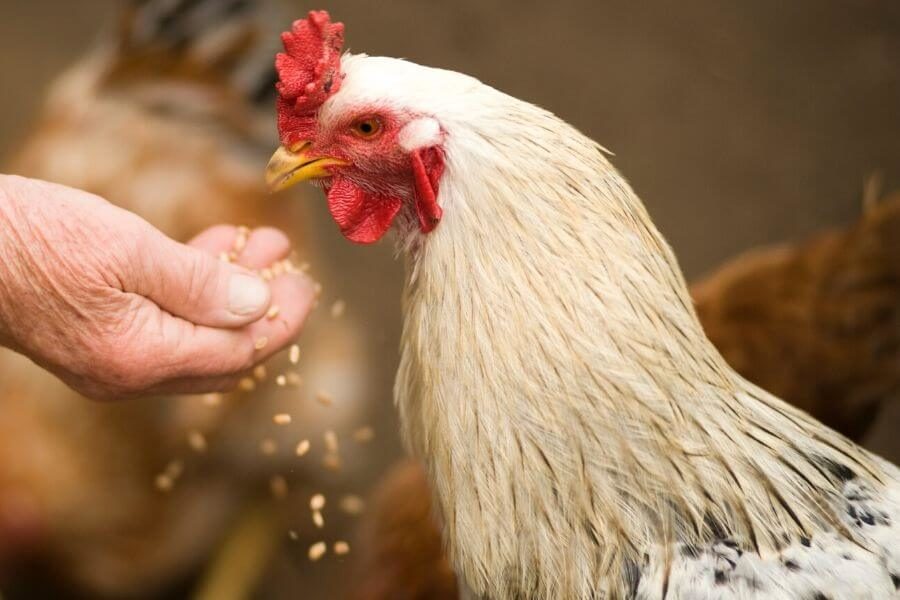
Feed
We feed a layer pellet and lots of garden and kitchen scraps. The hens love all the treats. I like to feed pellets instead of a crumble because they don’t waste as much feed. I found that crumbles got scattered all over in the run and then were walked on until they wouldn’t eat them anymore. Feeding pellets made a big difference in how much waste there was. I also made a chicken feeder from a five gallon bucket that really cut down on the amount of wasted food.
Chickens are a great first livestock for a beginning homesteader. We’ve had chickens for years and I love watching them scratch around and chase grasshoppers. We have definitely been spoiled with all of the fresh eggs that they give us too, I’d hate to have to go back to store bought eggs again.
What kind of chickens are you getting? Comment below! I’d love to hear from you!!
